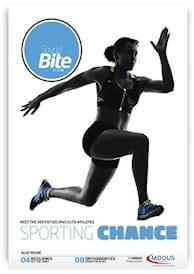THE move from the safe environment of dental school to the world of VT (now foundation training) was momentous, and second only to that from VT to OMG-I’m-actually- on-my-own associateship.
I remember it well. Going from a handful of patients per day to 20 seemed impossible, but after a few weeks I thought “I can do this!”
We come out of dental school thinking that we are dentists, and of course we are theoretically. We are definitely competent, but what makes a capable dentist? One who doesn’t panic before an ominous ‘pain’ patient and who knows how far to challenge herself?
Trust your team
During VT, I was lucky enough to have an excellent trainer and experienced nurse. Although I was technically in charge in that room, it was my nurse who guided and supported me when things got hairy. The dentist/nurse relationship can be tricky to establish but it is invaluable. As a young female, I worried about how to assert authority without seeming arrogant or “bossy”. But thankfully it does get easier with experience. I learned to keep clear boundaries between my professional and personal lives, and to be fair, consistent and respectful. Having a BDS does not make you superior: quality patient care depends on the whole dental team working together.
Trust your instincts
All dentists should reflect carefully on their skill set and know the limits of their competence. So if we feel that a particular treatment we are being asked to perform either isn’t appropriate or is beyond our competence, then I feel it is important to say “no”. If you do not think that you are capable, comfortable or correct in doing something, do not be bullied into it. You are the clinician and you must act in your patient’s best interests. If you do not feel it is the right decision, don’t do it (and refer to a specialist where appropriate). Never be swayed by financial gain, pride or hubris. If in doubt, seek advice from a more experienced colleague or trainer.
Practice makes patients
Remember that every dentist will develop at their own pace. So what if your mates are all now seeing 20 patients a day and you’re still struggling to get through a prep in 50 minutes? Take your time. Practise everything. While you shouldn’t act beyond your competence, equally don’t refer out every tricky procedure or you will struggle to improve. If you’re cutting corners, you’re not speeding up, you’re just missing out steps which could be the difference between a treatment succeeding or having to do it all again, leading to more stress for everyone. Those hours of practice will pay off and your confidence will naturally attract more patients and more challenging cases.
Shift focus
If your reason to be in this game is to buy a Ferrari in the first year, I have some disappointing news. There are far easier and less stressful ways to make money! While you will make a good living, that shouldn’t be your sole motivation. It won’t sustain you long term. Change the narrative so that you focus on the huge satisfaction of being a healthcare professional who helps patients. “Cash in” on the joy of somebody recommending you or sending a thank you card, rather than how much “upsell” they agreed to. If your patient’s wellbeing is at the heart of every decision, you really can’t go wrong.
Take care of yourself
Dentistry can take a toll on us physically and mentally. Neck and back problems are common, not to mention the chemicals we handle plus the daily sound of the drill. Invest in a great saddle seat and loupes, find a physio, practise pilates: there is no price on your health.
The hardest thing about dentistry is that there is a person attached to the end of that tooth: someone with needs, expectations, experiences and judgement. A newly qualified colleague told me recently how scary he finds the prospect of treating patients and asked how long it takes for that feeling to go away. The answer is, it never goes away (sorry!) I am just as anxious picking up a drill now as I was 16 years ago, but the trick is to have rationale, coping mechanisms and perspective up your sleeve.
Take reassurance from the many happy patients you see who value your care. We will all have challenging times and will all likely get the dreaded complaint letter. But thankfully you will be ready to respond with your excellent contemporaneous clinical notes (and with help from your defence organisation). Don’t be afraid to make use of the many support groups out there.
Be happy
We are dentists but that can’t be all we are. We are healthcare professionals but we are also people with thoughts feelings and flaws. Smile, be happy, you ARE a success. Find things outside of dentistry that allow you to have enjoyment and creativity. Do not let your life become drill, fill, suction, repeat. Explore the whole world outside and find yourself. After all, life is about living: and the only one in control of your happiness is you.
Dr Nishma Sharma is a dentist, dental adviser for NHSE and clinical leadership manager at the office of the Chief Dental Officer, NHS England
This page was correct at the time of publication. Any guidance is intended as general guidance for members only. If you are a member and need specific advice relating to your own circumstances, please contact one of our advisers.
Read more from this issue of Insight Primary

Save this article
Save this article to a list of favourite articles which members can access in their account.
Save to library